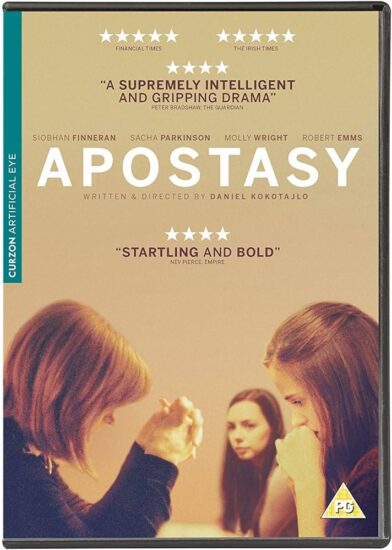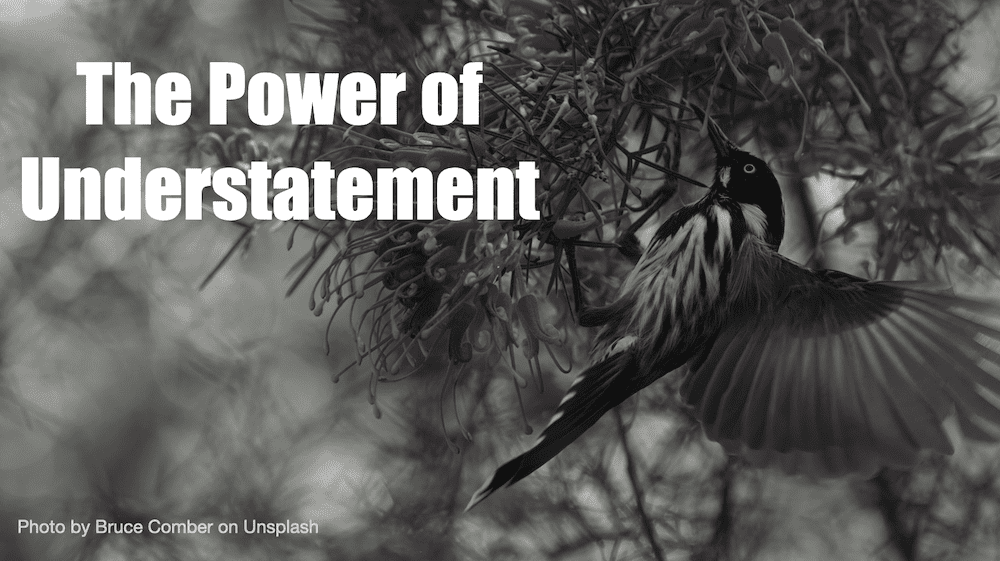Shhh!
Every once in a while, you come across someone who doesn’t speak much, but when they do, it’s always worth listening to. Do you know anyone like that? Typically, they spend their time observing, cogitating. Sometimes, they may also be thinking when the right time is to interject. It reminds me of a parrot joke, where the punch line is that despite being colourless, not able to talk or even squawk, this one particular parrot is the most expensive because everyone calls him “The Boss.” Maybe the key to cutting through is greater reserve and understatement, if not silence?
It’s noisy out there
In our social mediatised world, everyone (and everything) is spewing out content. According to Statista, via Exploding Topics, there are over 300 terabytes (where one terabyte = 1 trillion bytes) being created daily. And the overwhelming majority of that content is completely uninteresting and unuseful. A lot is anonymous, and a growing amount is AI-created. Timothy Schoup, Senior Advisor to the Copenhagen Institute of Future Studies (CIFS), predicts that “99% to 99.9% of all content on the internet will be AI-generated by 2025 to 2030.” So, getting your specific voice heard is only going to get harder. As if it weren’t difficult enough as it is. When I attend a party where younger people are present, it’s not uncommon to see them posing for themselves and snapping photos with their hand outstretched at a 45-degree angle above their head. Their posts might be entitled, “Living my best life”… and I’d add “sadly too online.” In 2018, The Times reported that, in China, each selfie takes on average 40 minutes to be ‘prepared’ for publication, using image-editing apps like Meitu. But making the perfect photo isn’t enough. On top of creating the content, one needs to spread it out and make it findable (think: SEO). Between the creation and optimisation of content, the business of content is bound to be hotly contested. And it seems likely that people (especially those in marketing) will tend toward the more extreme measures in order to get their word out. The end will, in their minds, justify the means. It promises to get really noisy out there.
Showing restraint through film
It’s clear that video is the booming medium. Videos account for over half of data internet traffic (Statista). Having done a film that is also a book, The Last Ring Home, I experienced up close the power of the moving picture versus the word. I’ve written about how important it is to get the word right, including the precision of the meaning, as well as the spelling and grammar (i.e. orthography). In a book, while we can leave things to the imagination, because it’s text black on white, we need to stick to what we mean, all the more so when it’s non-fiction. In a film, emotions come more evidently into the picture (pun intended). We can leave the image to speak without need for a voiceover. Thus, in film, we have to be more attentive to the pathos. So much of what we (especially among the younger generations) consume these days is in video format. But even us old folks. Hollywood blazed forward in the ‘science’ of creating captivating content. Television has invaded our homes. Smartphones, loaded with YouTube, TikTok and reels, have monopolised our hands and pockets. As a result, there’s an overwhelm of content trying to capture our attention, to break through the noise. Attention spans are the currency of content makers. If a longer film should slow down in pace too much, the mind might switch off and the fingers might start scrolling. So, today, most films use music virtually all the time to direct our emotions, either by putting up warning signs, to dramatise a moment or just to fill the silence. Not that I am against music. However, if you start to zero in on the music that’s used, you can start to see how invasive it is. It’s all the more irksome when documentary filmmakers feel the need to use music to insert more emotion.
The power of understatement
 Given the hyperbole and noise, how then does one cut through? For sure, there is no easy recipe. If it’s easy, there’s got to be a significant downside (huge bucks, automation, vanity metrics…). I don’t know about you, but have you ever been at a dinner party where everyone is talking, but it seems that few — if anyone — are listening? Part of the problem seems to be that we’re suffering from not being heard enough. I certainly recall how at the beginning of my blogging (and even podcasting), people used to comment on my posts quite a lot. That’s pretty much dried up, at least as specific comments from human beings on my blog proper. Instead, if it happens, the conversation often takes place elsewhere (as in on some other place where I post a link). It speaks to a broad problem of being connected, yet feeling disconnected. Without the reaffirming dopamine hit, some resort to more antics to be heard. At dinner parties, at a micro level, you can see individuals who just need to be heard. While I’d like to say I only speak when I have something pertinent and valuable to say, I’m far from blameless in this need to be heard. That’s why I was particularly smitten by a 2017 film, Apostasy, that I recently saw. Not only is the subject matter weighty and relevant for our society in terms of the pressure to belong to the “right” community, but it was produced in the most delicate of manners, filled with nuance and a mastery of the unsaid. I would dare to say that Apostasy is a masterpiece in the art of understatement. The film deals with plight of a family that is rendered apart through its attachment to the Jehovah’s Witnesses. In his debut film, director Daniel Kokotajlo, also the screenwriter, doesn’t use music to direct our emotions or amplify situations. Rather than lead us like sheep down a predictable path, the dialogue is enchantingly nuanced and realistic. Death, pain, guilt, conflict, and love is threaded throughout the film, yet never in an embellished or exuberant manner. You get the feeling that’s really how things happen in that community. And Kokotaljo didn’t bow down to give us a happy ending either. Instead, the film leaves us with an indelible message of how messy life is, about the tragedy of dogma and the impact of living your life cloaked in fear.
Given the hyperbole and noise, how then does one cut through? For sure, there is no easy recipe. If it’s easy, there’s got to be a significant downside (huge bucks, automation, vanity metrics…). I don’t know about you, but have you ever been at a dinner party where everyone is talking, but it seems that few — if anyone — are listening? Part of the problem seems to be that we’re suffering from not being heard enough. I certainly recall how at the beginning of my blogging (and even podcasting), people used to comment on my posts quite a lot. That’s pretty much dried up, at least as specific comments from human beings on my blog proper. Instead, if it happens, the conversation often takes place elsewhere (as in on some other place where I post a link). It speaks to a broad problem of being connected, yet feeling disconnected. Without the reaffirming dopamine hit, some resort to more antics to be heard. At dinner parties, at a micro level, you can see individuals who just need to be heard. While I’d like to say I only speak when I have something pertinent and valuable to say, I’m far from blameless in this need to be heard. That’s why I was particularly smitten by a 2017 film, Apostasy, that I recently saw. Not only is the subject matter weighty and relevant for our society in terms of the pressure to belong to the “right” community, but it was produced in the most delicate of manners, filled with nuance and a mastery of the unsaid. I would dare to say that Apostasy is a masterpiece in the art of understatement. The film deals with plight of a family that is rendered apart through its attachment to the Jehovah’s Witnesses. In his debut film, director Daniel Kokotajlo, also the screenwriter, doesn’t use music to direct our emotions or amplify situations. Rather than lead us like sheep down a predictable path, the dialogue is enchantingly nuanced and realistic. Death, pain, guilt, conflict, and love is threaded throughout the film, yet never in an embellished or exuberant manner. You get the feeling that’s really how things happen in that community. And Kokotaljo didn’t bow down to give us a happy ending either. Instead, the film leaves us with an indelible message of how messy life is, about the tragedy of dogma and the impact of living your life cloaked in fear.
In a world, where fear is the overarching narrative, as much as we may seek advice and reassurance from the elders, as presented in the film, it seems that they are as lost as the young, overwhelmed by the dynamics of the world. What if we started a movement of the understated? If nothing else, it might give hope for the introverts and those silent ears who spend their time fighting to get a word in sideways!
I had this further thought: what if you could develop a programme that was able to strip out the music of some of these Hollywoodesque films and allow the viewer to focus on the dialogue and acting? I think of a button that enables you to remove the background from a photo.











